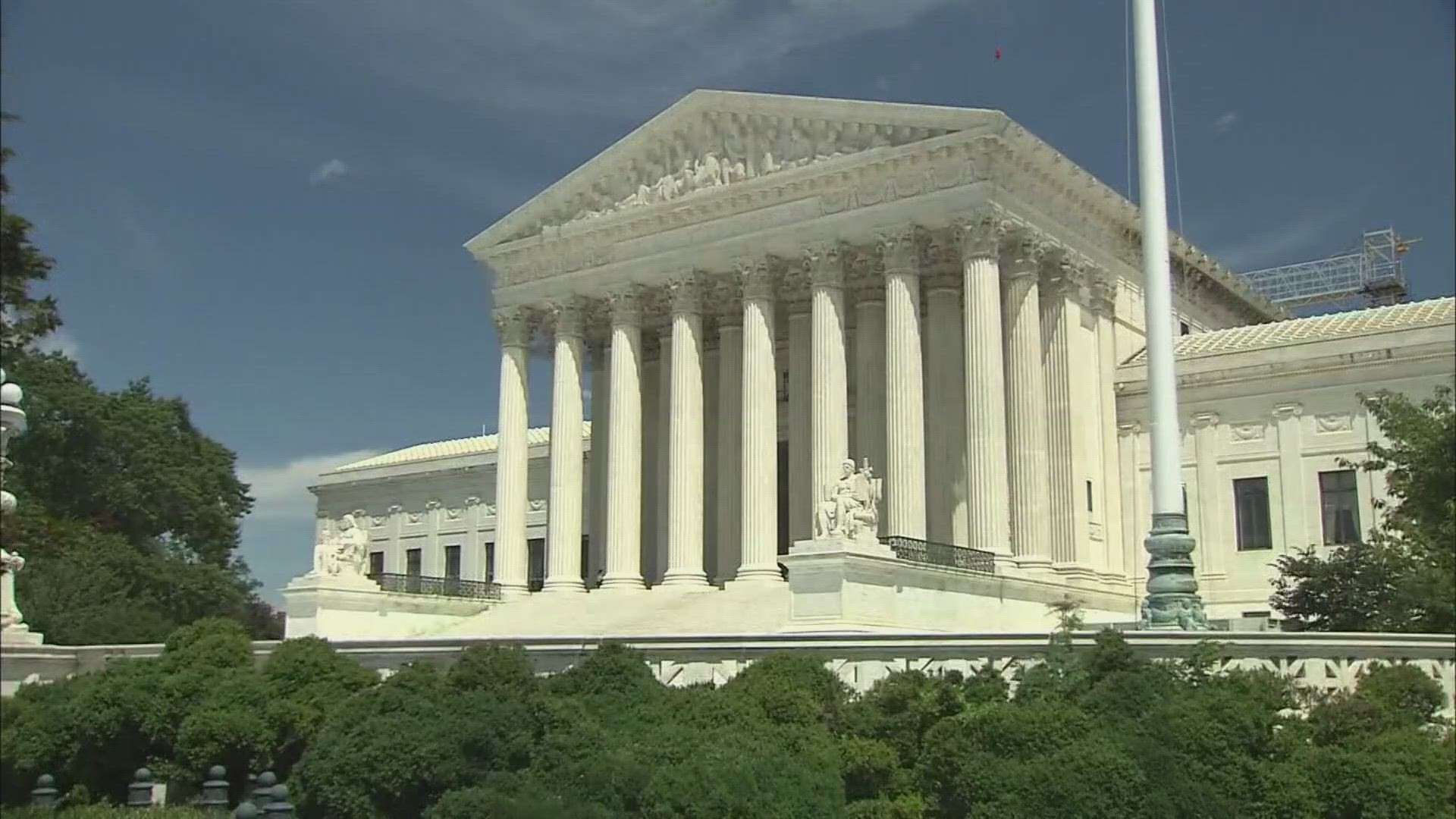TEXAS, USA — The U.S. Supreme Court struck down affirmative action in higher education on Thursday, ending race-conscious admission programs at colleges and universities across the country.
The court overturned admissions plans at Harvard and the University of North Carolina. The vote was 6-3 in the UNC case and 6-2 in the Harvard case.
6 News spoke to many Central Texas universities including Baylor, Texas A&M Central-Texas and the University of Mary Hardin-Baylor who say race has never been a factor in their admission process.
However, others like SMU and The University of Texas at Austin say the ruling will create change on their campuses.
Below is an excerpt from a statement by SMU President R. Gerald Turner about the Supreme Court decision on the use of race in university admission practices.
Despite the implications this ruling may have on policies and practices at SMU and every other college campus in America, we will continue to be a welcoming and supportive community. We will determine how the specifics of the high court’s ruling will affect the consideration of race in our enrollment efforts. We will meet this challenge while continuing to build a community that mirrors our global society – a campus where every Mustang is valued and feels a sense of belonging.
Associate Professor and Chair of Political Science Department at SMU, Joe Kobylka said it's important to note, when schools try to put together their incoming class, "they will not be able to focus on race in any way, shape or form."
Issues and Crisis Communications Senior Manager at the University of Texas at Austin Brian Davis also sent 6 News a statement regarding the Supreme Court decision:
Since the Supreme Court’s 2016 ruling in Fisher v. University of Texas, The University of Texas at Austin has continued to recruit and enroll consistently stronger classes composed of students from diverse backgrounds and perspectives, and improved graduation rates among all students, especially those who are underrepresented or first-generation. While doing so, the University has lawfully been considering race among many factors as part of its comprehensive and holistic admissions process. UT will make the necessary adjustments to comply with the most recent changes to the law and remains committed to offering an exceptional education to students from all backgrounds and preparing our students to succeed and change the world.
The reason the high court ruled against using race as a factor in admissions is because they said it violates the Constitution under the Equal Protection Clause.
"Under the Equal Protection Clause that guarantees equal protection law to every person in the United States, the government is not ordinarily permitted to draw distinctions based on race," Texas A&M Central-Texas Associate Professor of Political Science Jeffrey Dixon said.
The court also said the Constitution is colorblind, meaning no governmental policy or law can use race.
"The test for affirmative action, any kind of program that uses race, is strict scrutiny, compelling state interest," Kobylka said. "Chief Justice Roberts said for the majority, and this position held the votes of six members of the court, Chief Justice Roberts said that race is never a compelling interest in educational institutions and educational admissions."
Moving forward universities say campuses will try to adopt policies that achieve diversity, bringing in a broader range of students.
"Whether it's targeting underrepresented geographic areas, whether it's targeting schools that serve largely minority populations, whether you're looking at socioeconomic factors or looking at what Roberts refers to as personal factors, what those programs look like and how they are implemented will then be part of the next wave of litigation," Kobylka added.
While the ins and outs are still unknown, professors believe the decision will have ripple effects in higher education for a long time.
They still encourage students, no matter how this pans out, to apply to the school you desire, even though the change can be scary.
"Emphasize in the objective or the subjective parts of the of the application, your experiences whatever they may be, whether they involve cheerleading student government, dealing with sexism, dealing with racism, build that into your story of yourself as you sell yourself to the schools," Kobylka said.
"The court made clear that you can have a system of affirmative action, which allows people to talk about challenges that they have overcome and admits disproportionately people who have overcome challenges, that is not the same as race-based affirmative action," Dixon concluded.

